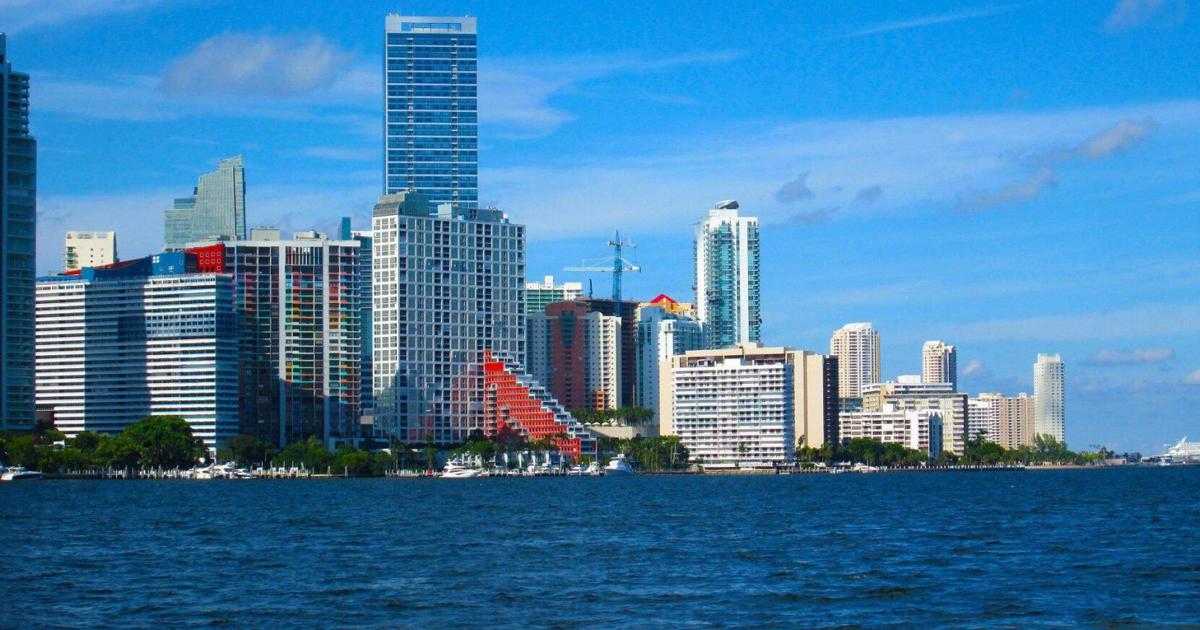Interest rates have doubled since last summer as Miami leads the nation with rents rising 31 percent YOY | Florida
It was May 19 when a headline from Zillow’s real estate marketplace company blared: “The Housing Market is as Competitive as Ever Despite Soaring Costs.” By June 21, however, another headline seemed ominous: “Housing Affordability Hits 15-Year Low as Prices, Mortgage Rates Soar.”
What a difference a summer makes.
Those sunbaked For Sale signs in front yards aren’t moving as quickly as they did last summer, now collecting more bird deposits than prospective buyers’ interests. Thursday in the Phoenix Business Journal, the headline read: “Is a Housing Crash Imminent?” — a story reflecting the cool-down in the U.S. home sales market.
This week, Data company Clever Real Estate, a national brokerage that pairs agents with consumers looking to buy or sell a home, ranked Miami (behind Orlando) as the No. 2 city in the country when it came to the highest overall vacancy rate at 14.7% (the national average is 11.6%), according to the company’s study.
In total, the report says nearly 161,000 housing units sit vacant in Orlando, which has a 15.3% vacancy rate. Tampa was third.
Orlando-area real estate broker Antonio Srado told WESH 2 News the issue isn’t that people don’t want to live in The City Beautiful — or Miami, for that matter. It’s just that many can’t afford to.
But the good news, according to Srado, is the market seems to be cooling due to inflation and higher interest rates, and he thinks that will eventually help to lower overall costs.
“Now we’re starting to feel some stabilization,” Srado told WESH 2 News. “Some properties are staying on the market longer and prices are dropping, not substantially, but prices are dropping as a result of that.”
According to Zillow’s latest forecast, 5.46 million existing home sales are expected in 2022, a 10.8% decrease from 2021.
Zillow also predicts a sharp slowdown in annual home value growth from the current pace of 19.8% to 7.8% through June 2023 (Zillow previously aimed at a 9.7% growth through May).
In a separate WESH 2 News real estate story, the demand to get a mortgage and the demand to get a loan to buy a house is the lowest it has been in 22 years, according to experts.
“The market stopped about 60 to 90 days ago,” Orlando agent Barrett Spray told WESH 2 News.
So, why the slowdown?
Interest rates have doubled. They started at 2.73% a year ago. Now they’re at 5.52%.
First, interest rates have doubled. They started at 2.73% a year ago. Now they’re at 5.52%.
“Somebody who could afford a $500,000 house before can only qualify for a $300,000, $350,000 house now,” Spray explained.
Then there’s inflation. The price of gas, food and just about everything seem to have gone up.
So, what’s next?
Experts say interest rates are expected to keep climbing, perhaps close to 8 percent, Spray said.
The good news for many consumers? The price of a house is expected to go down. Eventually.
What should buyers do now?
If you can wait at least a couple months, you should, advises Rick Palacios Jr., Director of Research at John Burns Real Estate Consulting, of Irvine, Calif., which delivers analyses of the housing market. “We haven’t been in a slowing environment for several years,” he said in a Yahoo Finance report.
“The choices are going to be out there. And I don’t think it’s the worst decision in the world to be a bit more patient now than you would have been when rates were 3-4%.”
Stats at a glance
According to Zillow, mortgage payments are higher than rent in 45 of the 50 largest U.S. metros, up from 22 in 2019. But, typical rents are up to $1,979 in the U.S. and still rising fast.
Florida tops the rent growth leaderboard, with rents rising the fastest annually in Miami (31%), Tampa (25.2%), and Orlando (23.7%) of all major metros.
Some factors to consider:
* Inventory is still 50% below what it was in 2019.
* The typical home in the U.S. is now worth $349,816.
* The typical family rent in the U.S. is $1,979.
* The top three U.S. fastest-growing rental markets year over year: Fort Myers, Miami and Sarasota.
* The top three U.S. fastest-growing home sale markets: Fort Myers, Sarasota and Raleigh, N.C.



